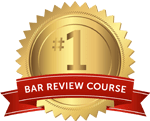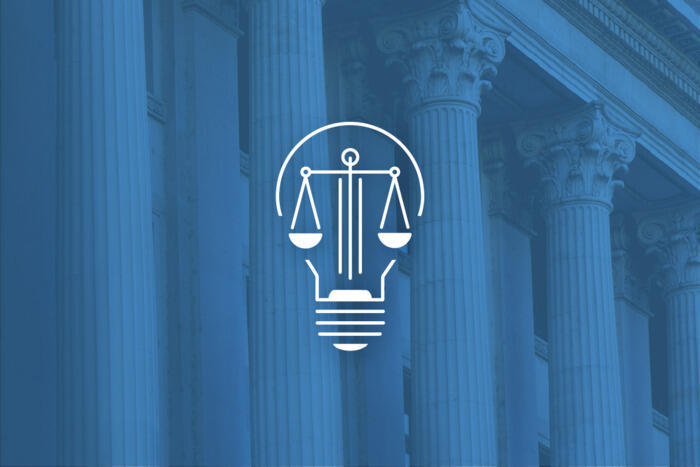After years of education and hard work, you are finally ready to clear the last hurdle to your legal career: the Bar Exam! Before you dive into bar study, make sure you have a clear understanding of the schedule and format of the bar exam, and the subjects tested. After all, your entire study plan should be crafted to help you pass the test as efficiently as painlessly as possible – a task that’s hard to focus on without understanding the exam itself.
Bar Exam Schedule and Components
Generally, the bar exam is a two-day exam offered twice a year: the end of February and the end of July. There are some exceptions. For example, Louisiana and Nevada employ a 3-day test format. And, in many jurisdictions, students who receive testing accommodations may be permitted to spread their exam over additional days of testing. (For advice on securing accommodations, check out our blog post and free video on that topic!)
TUESDAY: Writing Essays and Performance Tests
The first day of the bar exam consists of essay questions and Performance Tests. Currently, paper materials containing the questions are provided to the examinees, who then type their answers into test-taking software on personal laptops which they bring to this day of the exam. (There is also a handwriting option, but we do not recommend handwriting unless you have a disability that makes using a computer unfeasible for you.)
Essays: If you took any closed-book “issue-spotter” essay type questions in law school, the essay component of the bar exam may look somewhat familiar! Bar Exam questions test your knowledge of the law and your skills in legal analysis: recognizing applicable legal issues, stating the rules that apply, applying those rules to the facts, considering counterarguments, and reaching well-reasoned conclusions. Incorporating plenty of real bar exam essay questions into your study will enable you to master the essay-testing skills specific to your bar exam and will bolster your understanding of bar-tested law.
Performance Tests: Performance Tests may be less familiar to most examinees. According to the NCBE, Performance Tests are meant “to test an examinee’s ability to use fundamental lawyering skills in a realistic situation and to complete a task that a beginning lawyer should be able to accomplish.” This part of the bar exam does not test substantive knowledge, so, while a background understanding of how the legal system works is fundamental, there is no specific law to memorize.
However, that does not necessarily mean that the Performance Test is easy! The Performance Test requires examinees to read and analyze a large amount of material: a Task Memo setting forth the assignment; a Library of statutes, cases, and other sources of law; and a File consisting of notes, documents, and transcripts containing the relevant facts of the case. But reading is just the start – you’ll also need to prepare a complete and coherent legal document, with a reasoned legal analysis that considers all of the provided law and precedents. That can be daunting in 90 minutes! For this reason, timed practice is crucial, so that you can master Performance Test writing skills and become comfortable with a method of organizing the information and a pacing strategy that works for you.
What Does The Day Look Like In Your State?
UBE: The first day of the Uniform Bar Exam (administered all of the US jurisdictions listed here) consists of 6 Multistate Essay Exam (MEE) essay questions of 30 minutes each, followed by two Multistate Performance Tests (MPT) of 90 minutes each. Some states switch the order: Performance Tests in the morning, essays in the afternoon. Check with your jurisdiction to be sure! Both the MEE and MPT are drafted by the National Conference of Bar Examiners (NCBE) and are identical in all UBE states.
California: The first day of the California Bar Exam consists of 5 essays questions of one hour each, followed by one California Performance Test. There is a break for lunch between the third and fourth essay questions.
Other States:
- Hawaii’s bar exam is identical to the UBE, with the addition of 15 multiple choice questions constituting the Hawaii Legal Ethics Exam.
- South Dakota uses 5 essays from the MEE and one essay on Federal Indian Law, plus two Performance Tests.
- Wisconsin can administer any combination of MEE, MPT, and locally drafted questions.
- The writing portion of the Georgia and Delaware exams use the MPT alongside state-specific bar exam essay material.
- Nevada administers the Nevada Performance Test, which is identical in format to the MPT and the California Performance Test but locally drafted, together with Nevada state-specific bar exam essays.
- Florida, Mississippi, Nevada, and Virginia use only state-specific materials for the written part of the bar exam; Florida also includes a state-specific multiple-choice component.
WEDNESDAY: Multiple Choice (MBE Questions)
On the last Wednesday of February and July, all U.S. States and territories except Louisiana and Puerto Rico administer the Multistate Bar Exam (MBE), a 200-question multiple choice examination. Examinees have 3 hours to complete 100 questions in the morning, then 3 hours to complete 100 questions in the afternoon.
Each question on the MBE is designed to be answered according to legal principles that are generally applicable, not according to the law of any specific state. MBE questions can be tricky! At BarMax we recommend an Active Study strategy that focuses first on learning how the rules apply to real bar questions, then on memorization.
On Wednesday, you will leave your computer at home: each examinee receives a paper test booklet containing the questions, plus a separate “bubble sheet” on which to fill in circles corresponding with the answer selections.
Subjects Tested on The Bar Exam
Multiple Choice Questions
MBE – The multiple-choice portion of the bar exam tests the following subjects:
| Subjects Test on the MBE | Main Source of Law |
| Contracts | common law, plus UCC Article 2 (Sale of Goods) |
| Crimes: Criminal Law & Procedure | common law, the Model Penal Code, and Amendments IV, V, VI, and VII of the US Constitution |
| Torts | common law and related statutory law |
| Evidence | Federal Rules of Evidence |
| Civil Procedure | Federal Rules of Civil Procedure |
| Real Property | common law and related statutory law |
| Constitutional Law | US Constitution and related caselaw |
Essays
UBE/MEE – The MEE can test any of the subjects listed below. Not every subject appears in every exam administration, and some essay questions test more than one subject. For example, one fact pattern could raise issues in both Evidence (such as hearsay) and Criminal Procedure (such as the Confrontation Clause). Conflicts of Law is never tested alone as its own subject but can appear as an issue in questions on Civil Procedure, Family Law, or other subjects.
| Subjects Tested on MEE (UBE) Essays |
|
All MBE Subjects Contracts, Crimes, Torts, Evidence, Civil Procedure, Real Property, Constitutional Law |
|
Decedent’s Estates Wills & Trusts |
|
Business Associations Agency, Partnership, Corporations, and LLC’s |
|
Secured Transactions UCC Article 9 |
| Family Law |
| Conflict of Laws |
California – The California bar can test any of the subjects listed here. Professional Responsibility appears every time; otherwise, any subject may show up in any administration. As with the MEE, some essays may test more than one subject.
| Subjects Tested on California Bar Exam Essays |
|
All MBE Subjects Plus CA Distinctions in Civil Procedure and Evidence Law |
| Professional Responsibility ABA Model Rules and CA Rules of Professional Conduct |
|
Business Associations Agency, Partnership, Corporations, and LLC’s |
| Wills and Succession |
| Trusts |
| Community Property |
| Remedies |
Other States – Other states test a variety of subjects, including state-specific subjects like state civil procedure. The best way to learn about those bar exams is by consulting the jurisdiction! Many states have extensive materials, including past essay questions and answers, on their state bar websites.
When State Distinctions Matter
Students taking the UBE should answer in accordance with generally-accepted legal principles and do not need to know their state’s distinctions.
Even in California, many of the subjects do not test state-specific law. Specifically: Contracts, Criminal Law, Torts, and Real Property test the same generally-applicable principles of law that you learned during your first year of law school. The law of Trusts is also generally applicable across all states. Similarly, Criminal Procedure and Constitutional Law rely on the U.S. Constitution. This means you do NOT need to know any special California law to do well in any of those subjects! Is addition, Evidence and Civil Procedure problems set in federal court require you to apply the Federal Rules of Evidence and the Federal Rules of Civil Procedure.
However, you will need to know California law for some essays! Answer Community Property, Wills, and Business Associations questions using California law. For Evidence and Civil Procedure problems set in state courts, explain any California distinctions that apply. Similarly, in Professional Responsibility questions, where the ABA Model Rules and the California Rules of Professional Conduct differ, you should demonstrate that you know both rules, and that you recognize any potential difference in application to the facts at hand.Other states may require distinctions, to varying degrees. In ANY jurisdiction, your best bet is to practice from real past bar exam questions to make sure that the work you are doing now is preparing you for the specific bar exam you will be taking down the line!
Read, Set, Go!
Now that you have a clearer idea what the bar exam itself holds in store for you, it’s time to prepare yourself for you bar study. Whether you are on the cusp of graduating from law school or returning to the law after many years away, consider meeting with a BarMax success advisor who can help you craft a plan that’s right for you. Bar prep may feel like a marathon, but you will be ready for the victory that awaits you at the finish line!







